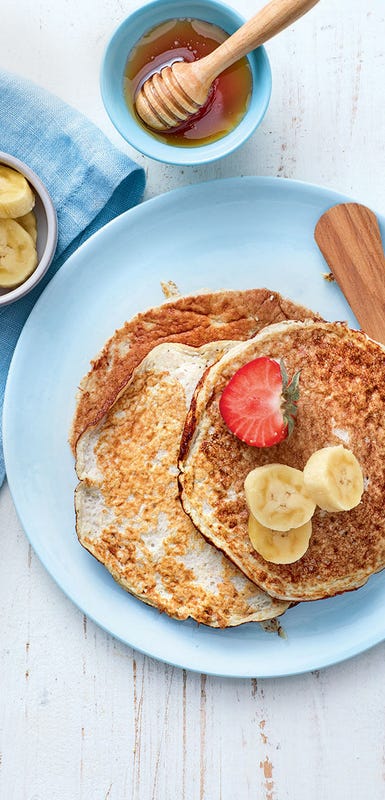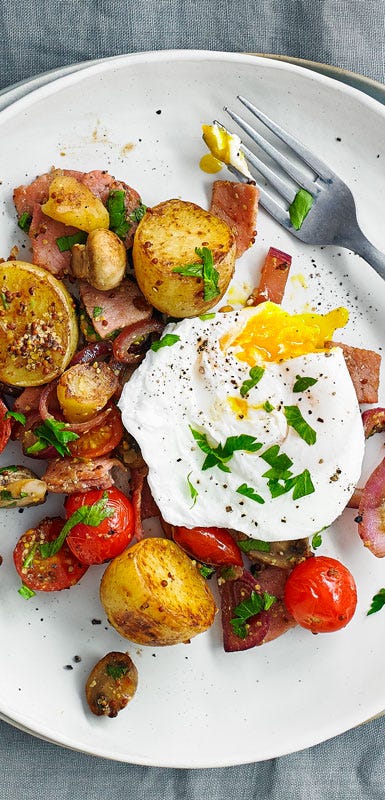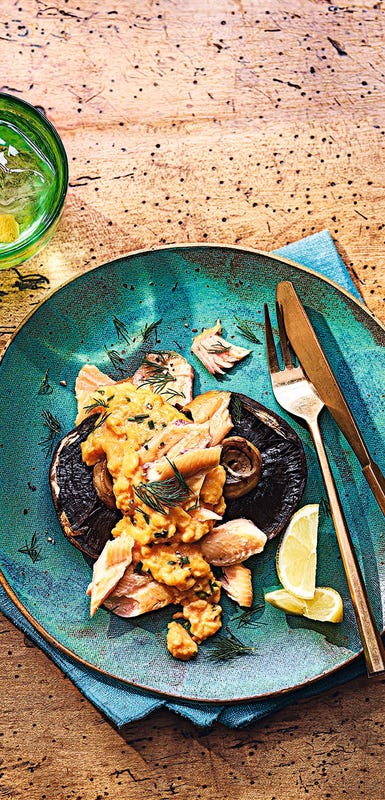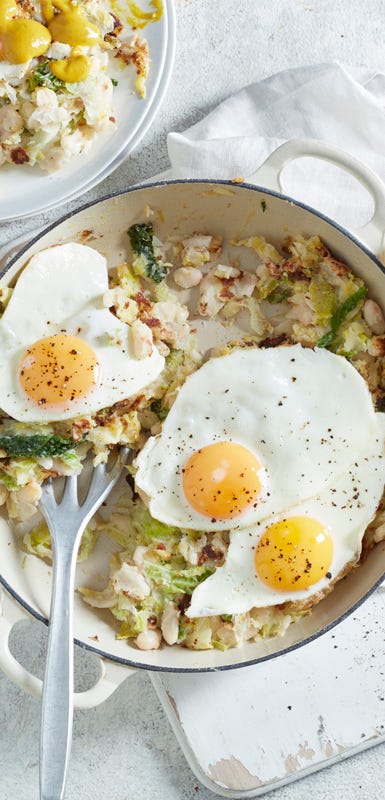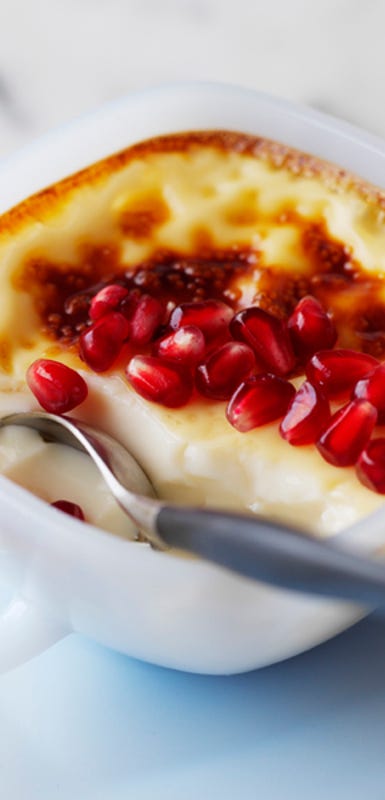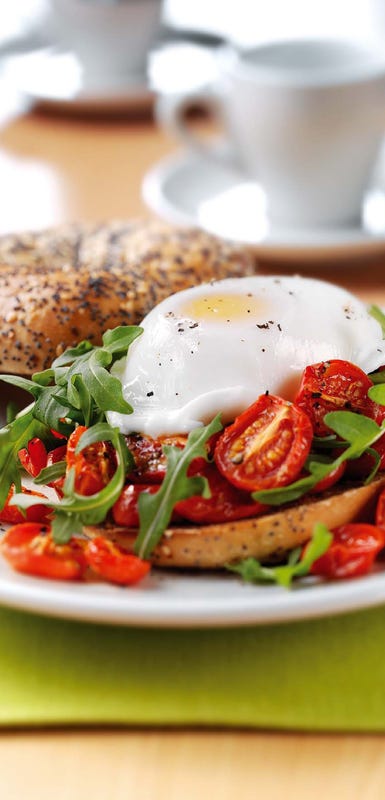6 easy egg recipes for dinner
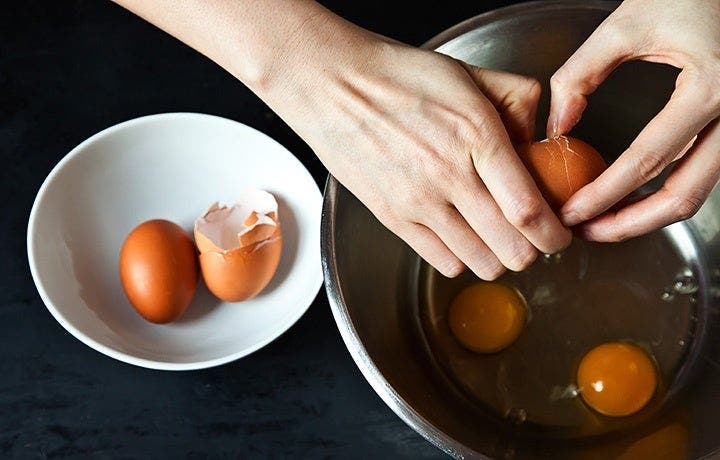
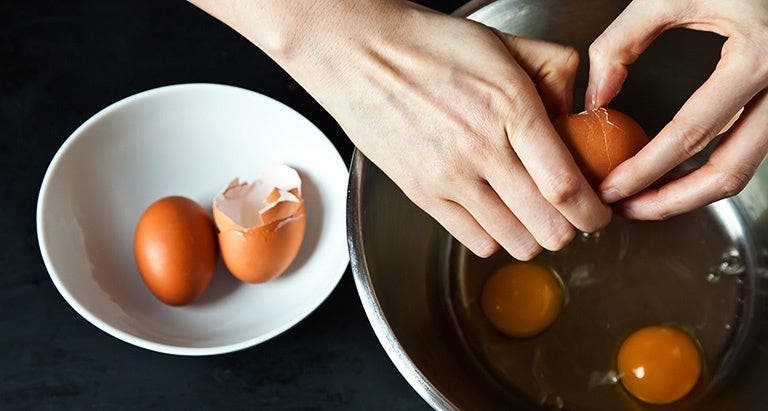
Eggs aren't limited to breakfast recipes; they're also a winner for dinner! They’re easy, convenient and versatile - you can do so many things with eggs that you'd be hard-pushed to get bored of them. Whether they're the centerpiece of a meal, a nutritious addition to leftovers or a favourite go-to dish, eggs not only taste delicious but also provide protein that can help fill you up.
RELATED: 8 foods that will keep you full
What to do with fried eggs
Enjoy eggs sunny side up? Use to top green or bean salads, particularly those with a tangy vinaigrette.
Lightly coat a nonstick frying pan with calorie controlled cooking spray and set it over medium heat for 1 minute. Crack an egg into a small bowl, then slip it into the pan. Cook until the whites are set, about 3 minutes for crispy edges on the white and a runny yolk. Flip the eggs for a more set yolk. Sprinkle a little vinegar over each egg before serving with salt and ground black pepper on the side.
What to do with poached eggs
Love your eggs poached? Give leftover chicken noodle soup, beef stew, or even chilli a new lease of life.
Bring a medium saucepan of water to a boil over high heat. Crack an egg into a small bowl. Turn the heat down until the water barely simmers. Slip the egg into the water, cover, and leave for 3 minutes for a set white but a runny yolk, or 4 minutes for a more set yolk. Scoop each egg up with a slotted spoon, dabbing the bottom of the spoon on paper towels to get rid of excess moisture before transferring the egg to a bowl on its own or into a soup or stew.
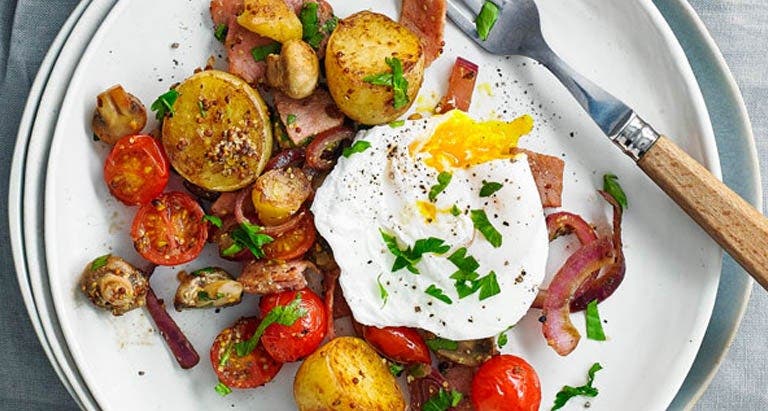
What to do with hard-boiled eggs
Add to tuna or chicken salad. Better yet, make a quick Niçoise salad featuring a freshly cooked, still-warm, hard-boiled egg.
Place an egg (or several) in a large pot of cold water. Bring the water to a full boil over high heat. Boil for 1 minute. Then cover the pot, remove it from the heat, and set aside for 7 minutes. Run the eggs under cool water until you can peel them. The eggs will be fully cooked but the yolks will not be dry and crumbly.
What you should know about buying and storing eggs
Keep these two things in mind when eggs are on your shopping list.
1. What’s on the inside counts
Fresh eggs are hard to beat, but it’s the genetic makeup and stress level of the chicken that determines shell colour. Look for the freshest, best eggs you can comfortably afford.
2. Size matters!
Read the labels to determine the size of each egg. If a recipe calls for large eggs, buy and use those.
Why do eggs need to be refrigerated?
All U.S., Canadian, Australian, Japanese, and most Scandinavian producers wash eggs with hot, soapy water to combat pathogens. However, this also removes a natural, protective coating on the shells. For health and safety reasons, these eggs must be refrigerated from the moment of washing onward, farm to table. As temperatures fluctuate, the washed eggs will 'perspire', which can lead to weakened or (worse) mouldy shells. But the good news? Most refrigerated eggs are safe to use for at least three weeks after purchase.
Try these delicious egg recipes
From gourmet scrambled eggs to a warming bowl of pomegranate custard, here are six of our best egg recipes which are quick and easy to follow. Don't forget to check out our post which explains how to cook eggs perfectly every time!

